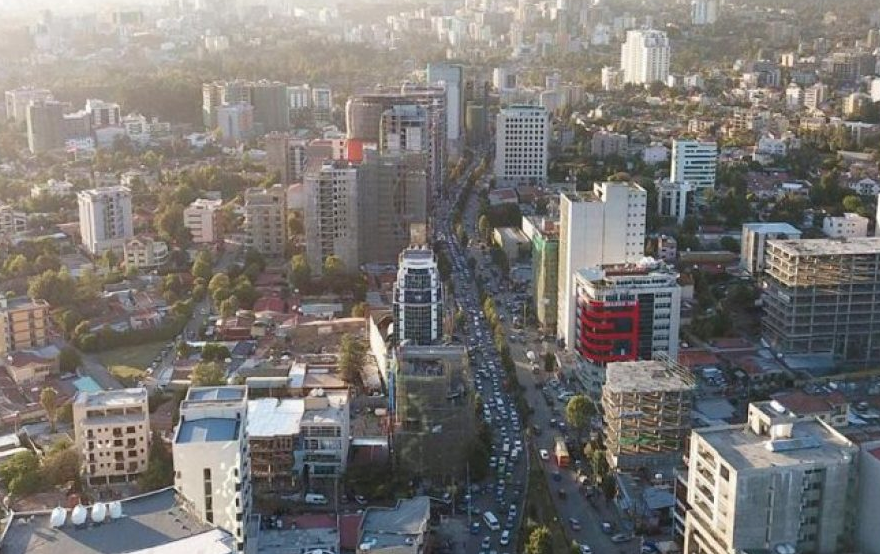
Radar | Feb 01,2020
Jun 17 , 2023
By Asseged G. Medhin
Developing countries have disproportionately felt pressure as the world grapples with post-Covid economic instability. High inflation rates are wreaking havoc from Zimbabwe to Venezuela, with prices of goods and services on a seemingly uncontrollable upward trajectory. Economic solutions, which traditionally emerged from Europe and the US, are now eluding experts globally, as models that once stood the test of time now fail to map out the road to recovery.
In a world that has been dealing with upheaval for more than half a decade, from the outset of the Covid-19 pandemic through geopolitical tensions and now on the brink of a potential global recession, the relentless rise of inflation is looming as the next significant hurdle for policymakers. With inflation reaching double digits in Western economies - and even more alarming levels in many developing nations - the pressure is on for a solution that appears increasingly elusive.
In the developing world, from Argentina to Sudan and from Turkey to Iran, the inflationary spiral is intensifying, resulting in rising living costs, income inequalities, and pleas for tax relief from businesses. In Ethiopia, historically more sheltered from such external factors, inflationary pressures are intensifying, with rates climbing between 35pc and 45pc. On the receiving end are countries with high populations, as the price hike has been most notable in essential sectors such as food, energy, housing, and transport.
Against this backdrop, Japan stands as an outlier. Its stringent price control measures, coupled with negative interest rates and a predominantly ageing population, are expected to hold inflation at just 1.4pc in 2023, a commendable feat given the prevailing global economic climate.
As we unravel the web of contributing factors, it becomes clear that the pandemic is not solely to blame.
Rising supply chain costs, fueled by high energy prices, are slowly filtering through various industries, causing a knock-on effect exacerbating inflation. Shifts in labour market trends, such as job availability and wage increases, fuel these inflationary pressures.
Further complicating matters is the ongoing Russia-Ukraine war, which, unless resolved, continues to pose a lingering threat to global economic stability. Predicting its future ramifications is a task even the most seasoned forecasters are approaching with caution, emphasising the uncertainty that looms over the global economy.
In response, central banks worldwide have initiated a concerted effort to curb inflation, hiking interest rates in a synchronised move not witnessed in over 50 years. The Bank of England, the US Federal Reserve, and the European Central Bank (ECB) have all made adjustments to respond to the pressures of inflation. This approach, however, may not be sufficient to return global inflation to pre-pandemic levels.
Investors now anticipate central banks raising global monetary-policy rates to almost four percent through 2023, representing an increase of over two percentage points from their 2021 average.
However, the fear is that the expected trajectory of interest-rate increases and other policy actions may not be enough to quell the rising tide of global inflation. An increase in the core inflation rate to five percent could have profound and long-lasting impacts on the global economy, hitting emerging markets and developing economies particularly hard.
To maintain a semblance of stability in the current global economic scenario, both supply disruptions and labour-market pressures must be mitigated effectively. Policymakers and regulators worldwide are expected to step up and create robust, practical models to weather this storm.
The broad consensus suggests that achieving lower inflation rates, currency stability, and faster growth requires a fundamental policy shift, moving away from measures to reduce consumption. Instead, they aim to boost production, enhancing aggregate supply and incorporating the idle labour force into the economy. Productivity must remain at the heart of these policies, as generating and wisely allocating additional investment is crucial for growth and poverty reduction.
The world has already responded by tightening monetary and fiscal policies, which should help curb inflation. However, this approach could potentially hamper growth.
The global economy, presently in a state of deceleration following a post-recession recovery that started around 1970, is showing signs of vulnerability. A significant decline in global consumer confidence and slowing growth in the world's three largest economies — the US, China, and the euro area — suggests that even a moderate hit could push the global economy into recession in the coming year.
Lessons from history echo this concern.
The policy responses to the 1975 global recession and the ensuing period of stagflation illuminate the risks of letting inflation remain elevated while growth is weak. The 1982 global recession, which coincided with one of the lowest growth rates in developing economies, resulted in numerous debt crises and a decade of lost growth. This calls for a global economic forum that promotes open dialogue, stimulates debate, and encourages the crafting of effective policies and regulations.
Like many other developing nations, Ethiopia is not exempt from the consequences of a global recession. Its policymakers should learn from these global strategies and make informed decisions to boost the country's economic resilience, particularly in light of a possible global recession. Such daunting challenges should compel them to devise a remedial course of action.
The central bank must communicate policy decisions clearly while safeguarding its autonomy. This could help anchor inflation expectations and reduce the degree of monetary tightening required.
Fiscal authorities, in turn, will need to carefully calibrate the withdrawal of budgetary support measures, ensuring they align with monetary policy objectives. Other policymakers must join in the fight against inflation by taking robust steps to enhance supplies. Through a mix of these strategies, it might be possible to navigate these uncharted waters and guide the global economy, towards a more stable and prosperous future.
PUBLISHED ON
Jun 17,2023 [ VOL
24 , NO
1207]


Radar | Feb 01,2020

Advertorials | Jun 05,2023

Featured | Sep 09,2019

Viewpoints | Feb 03,2024

Commentaries | Nov 30,2024

Viewpoints | Apr 15,2023

Fineline | Jan 12,2019

Commentaries | May 13,2023

Commentaries | Oct 12,2024

View From Arada | Feb 01,2020

My Opinion | 131586 Views | Aug 14,2021

My Opinion | 127942 Views | Aug 21,2021

My Opinion | 125917 Views | Sep 10,2021

My Opinion | 123541 Views | Aug 07,2021

Dec 22 , 2024 . By TIZITA SHEWAFERAW
Charged with transforming colossal state-owned enterprises into modern and competitiv...

Aug 18 , 2024 . By AKSAH ITALO
Although predictable Yonas Zerihun's job in the ride-hailing service is not immune to...

Jul 28 , 2024 . By TIZITA SHEWAFERAW
Unhabitual, perhaps too many, Samuel Gebreyohannes, 38, used to occasionally enjoy a couple of beers at breakfast. However, he recently swit...

Jul 13 , 2024 . By AKSAH ITALO
Investors who rely on tractors, trucks, and field vehicles for commuting, transporting commodities, and f...

Jun 28 , 2025
Meseret Damtie, the assertive auditor general, has never been shy about naming names...

Jun 21 , 2025
A well-worn adage says, “Budget is not destiny, but it is direction.” Examining t...

Jun 14 , 2025
Yet again, the Horn of Africa is bracing for trouble. A region already frayed by wars...

Jun 7 , 2025
Few promises shine brighter in Addis Abeba than the pledge of a roof for every family...

Jun 29 , 2025
Addis Abeba's first rains have coincided with a sweeping rise in private school tuition, prompting the city's education...

Jun 29 , 2025 . By BEZAWIT HULUAGER
Central Bank Governor Mamo Mihretu claimed a bold reconfiguration of monetary policy...

Jun 29 , 2025 . By BEZAWIT HULUAGER
The federal government is betting on a sweeping overhaul of the driver licensing regi...

Jun 29 , 2025 . By NAHOM AYELE
Gadaa Bank has listed 1.2 million shares on the Ethiopian Securities Exchange (ESX),...